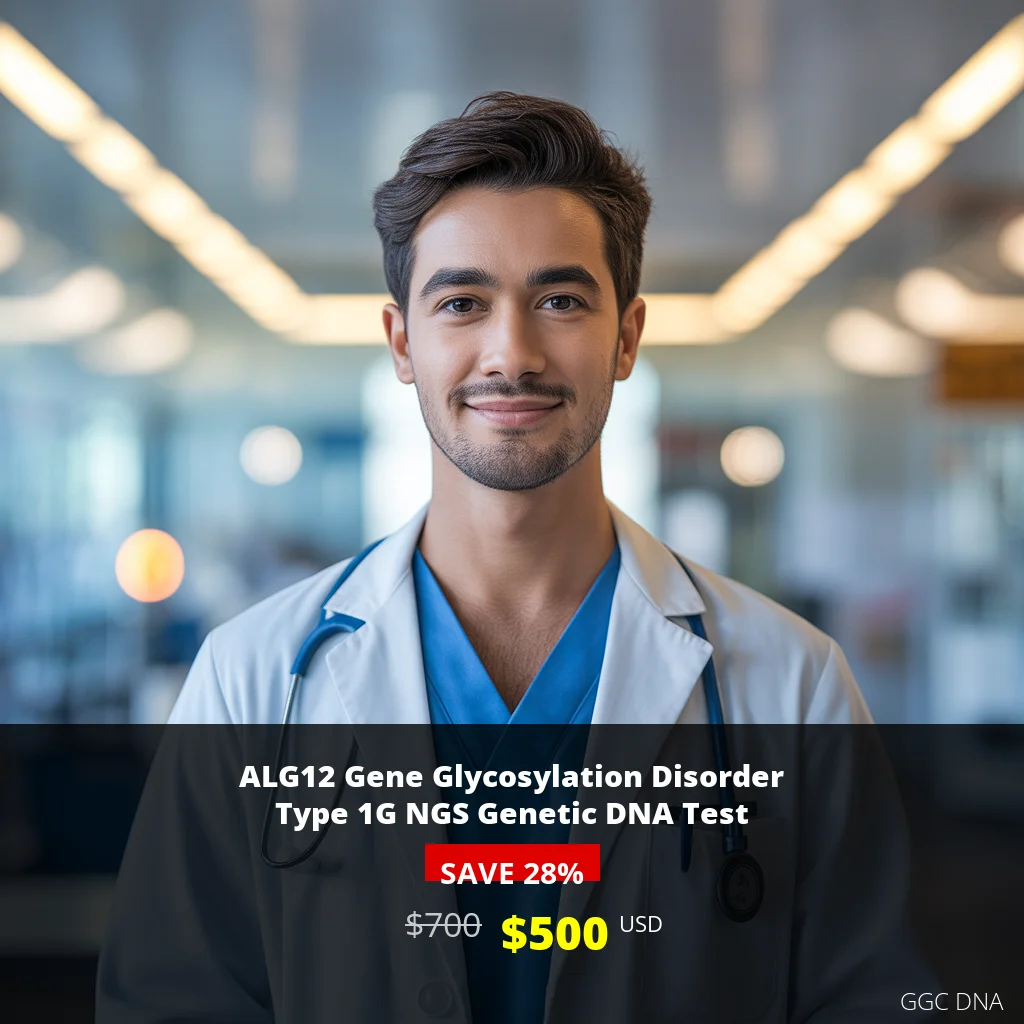ALG12 Gene Glycosylation Disorder Type 1G NGS Genetic DNA Test
Comprehensive Genetic Testing for Metabolic Disorders
The ALG12 Gene Glycosylation Disorder Type 1G NGS Genetic DNA Test represents a breakthrough in genetic diagnostics for metabolic conditions. This advanced screening utilizes next-generation sequencing technology to identify specific mutations in the ALG12 gene that are responsible for congenital disorders of glycosylation type 1G. These rare genetic conditions disrupt the normal process of adding sugar molecules to proteins, which is essential for proper cellular function and development.
What This Test Measures and Detects
Our comprehensive NGS genetic test specifically targets the ALG12 gene, which encodes an enzyme critical for the dolichol-linked oligosaccharide pathway. The test identifies:
- Pathogenic variants in the ALG12 gene
- Single nucleotide polymorphisms associated with glycosylation disorders
- Insertions, deletions, and missense mutations
- Copy number variations affecting gene function
- Specific genetic markers for congenital disorders of glycosylation type 1G
Who Should Consider This Genetic Test
This specialized genetic screening is recommended for individuals presenting with:
- Unexplained developmental delays in infancy or childhood
- Neurological symptoms including seizures or hypotonia
- Failure to thrive despite adequate nutrition
- Abnormal liver function tests without clear cause
- Coagulation disorders or bleeding tendencies
- Family history of metabolic disorders or unexplained infant deaths
- Multiple congenital anomalies affecting various organ systems
- Suspected inherited metabolic conditions
Significant Benefits of Genetic Testing
Undergoing the ALG12 Gene Glycosylation Disorder Type 1G test provides numerous advantages:
- Accurate Diagnosis: Provides definitive identification of genetic mutations causing glycosylation disorders
- Personalized Treatment: Enables targeted therapeutic interventions based on specific genetic findings
- Family Planning: Offers crucial information for genetic counseling and reproductive decisions
- Early Intervention: Facilitates proactive management strategies before severe complications develop
- Prognostic Information: Helps predict disease progression and potential complications
- Research Contribution: Advances scientific understanding of rare metabolic disorders
Understanding Your Test Results
Our comprehensive genetic analysis provides detailed insights into your ALG12 gene status:
- Positive Result: Indicates the presence of pathogenic variants associated with glycosylation disorder type 1G, requiring immediate consultation with metabolic specialists
- Negative Result: Suggests no detectable mutations in the ALG12 gene, though other genetic causes should be considered if symptoms persist
- Variant of Uncertain Significance: Identifies genetic changes with unknown clinical impact, requiring ongoing monitoring and potential family studies
- Carrier Status: Reveals if you carry one copy of a mutated gene, important for family planning decisions
Test Pricing Information
| Price Type | Amount (USD) |
|---|---|
| Discount Price | $500 |
| Regular Price | $700 |
Nationwide Testing Availability
We proudly offer comprehensive genetic testing services across the United States with convenient locations in major metropolitan areas including New York, Los Angeles, Chicago, Houston, Phoenix, Philadelphia, San Antonio, San Diego, Dallas, and San Jose. Our state-of-the-art laboratories ensure consistent, reliable results regardless of your location.
Schedule Your Genetic Test Today
Take the first step toward understanding your genetic health. Our experienced genetic counselors and medical professionals are ready to guide you through the testing process and help interpret your results. Contact us today to schedule your ALG12 Gene Glycosylation Disorder Type 1G NGS Genetic DNA Test and gain valuable insights into your metabolic health.
Call or WhatsApp: +1(267) 388-9828 to book your appointment or discuss your testing options with our genetic specialists.







